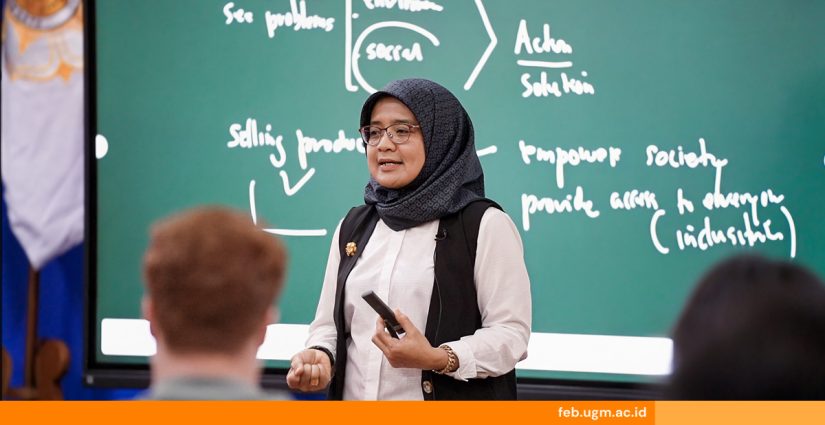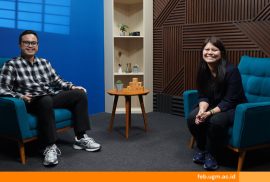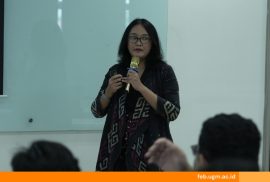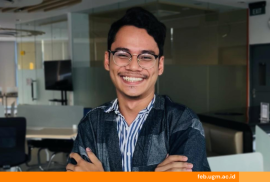
Creative and empathetic problem-solving was the central message of FEB UGM Professor, Prof. Nurul Indarti, Sivilokonom, Cand.Merc., Ph.D., to students from nine countries. During the Design Thinking workshop, part of the Global Summer Week 2025 series, she invited students to design real solutions using the design thinking approach—an iterative, human-centered problem-solving method to generate innovative solutions relevant to users’ needs.
“This method involves key elements such as empathy, curiosity, collaboration, experimentation, and a bias toward action. It emphasizes concrete actions over mere ideas and focuses on navigating complex and uncertain environments,” Nurul explained on Thursday (17/7) at FEB UGM.
Participants used core tools, such as stakeholder mapping, empathy mapping, 4W problem framing, and problem trees, to address the identified issues.
“The principle of this process starts from the ‘problem space’, where the focus is on understanding and defining the problem, and moves into the ‘solution space.’ This human-centered design process puts human needs and experiences at the heart of every solution, focusing on tangible results,” she added.
Prof. Nurul also explained several key phases involved in both the problem and solution space. The problem space emphasizes understanding the situation through the stages of empathize and define. Meanwhile, the solution space consists of three main steps: ideation, prototyping, and testing.
“One important step is reformulating problems into opportunities, starting from the user’s perspective. This approach takes the form of the creative question, “How might we…?” This question opens up space for a wide range of possible solutions,” she continued.
On that occasion, Nurul also encouraged participants to generate ideas and create truly innovative solutions. She stated that innovative solutions should meet five main criteria: empathy-driven, feasible, viable, impactful, and scalable.
“First, solutions must be designed based on a deep understanding and must solve real problems. Then, they should be realistically implementable using available resources and technology. Additionally, they must have potential for sustainability backed by sufficient funding, create a significant positive impact, and be scalable for broader implementation,” Nurul said.
To close the session, Prof. Nurul shared inspirational quotes from two renowned global figures. She quoted Steve Jobs: “Innovation is the ability to see changes as an opportunity, not a threat,” and Peter Drucker, who said: “An entrepreneur is someone who can see an opportunity, and take it.”
“The key to innovation is seeing change as an opportunity, not a threat. Likewise, a true entrepreneur dares to seize an opportunity and turn it into reality,” she concluded.
Report by: Shofi Hawa Anjani
Editor: Kurnia Ekaptiningrum
Sustainable Development Goals









